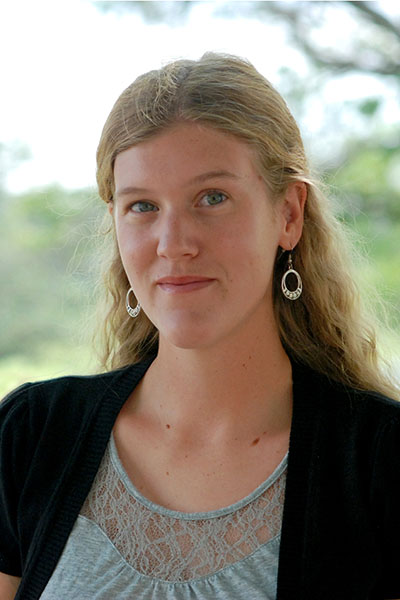Launched during the Summer of 2011, the Sustainability Internship Program has provided opportunities to over 120 students with representation from every college on campus. Student interns work together with office staff and campus partners to help create a culture of sustainability on campus through education, outreach, and action.
Spring 2025
Another wonderful semester! Our interns led activities on building sustainable cities, rethinking water-intensive agriculture, protecting national parks, and practicing sustainable consumption. We had another great semester celebrating Campus Earth Month and engaging TAMU students in campus sustainability! Also, a shoutout to Bilal Mazhar, Eline Guantos, and Rebecca Krenek for joining as Sustainability Technicians!

Fall 2025
This semester, our interns continued the sustainability spirit by hosting Campus Sustainability Month TedTalks, Campus Sustainability Day interactive tabling activities, and a Sustainability workshop! From sustainable concerts to Indigenous water rights, our interns explored more niches within sustainability, expanding horizons for Texas A&M campus. This was also our new Sustainability Specialist's first group of interns, making it a very special semester.
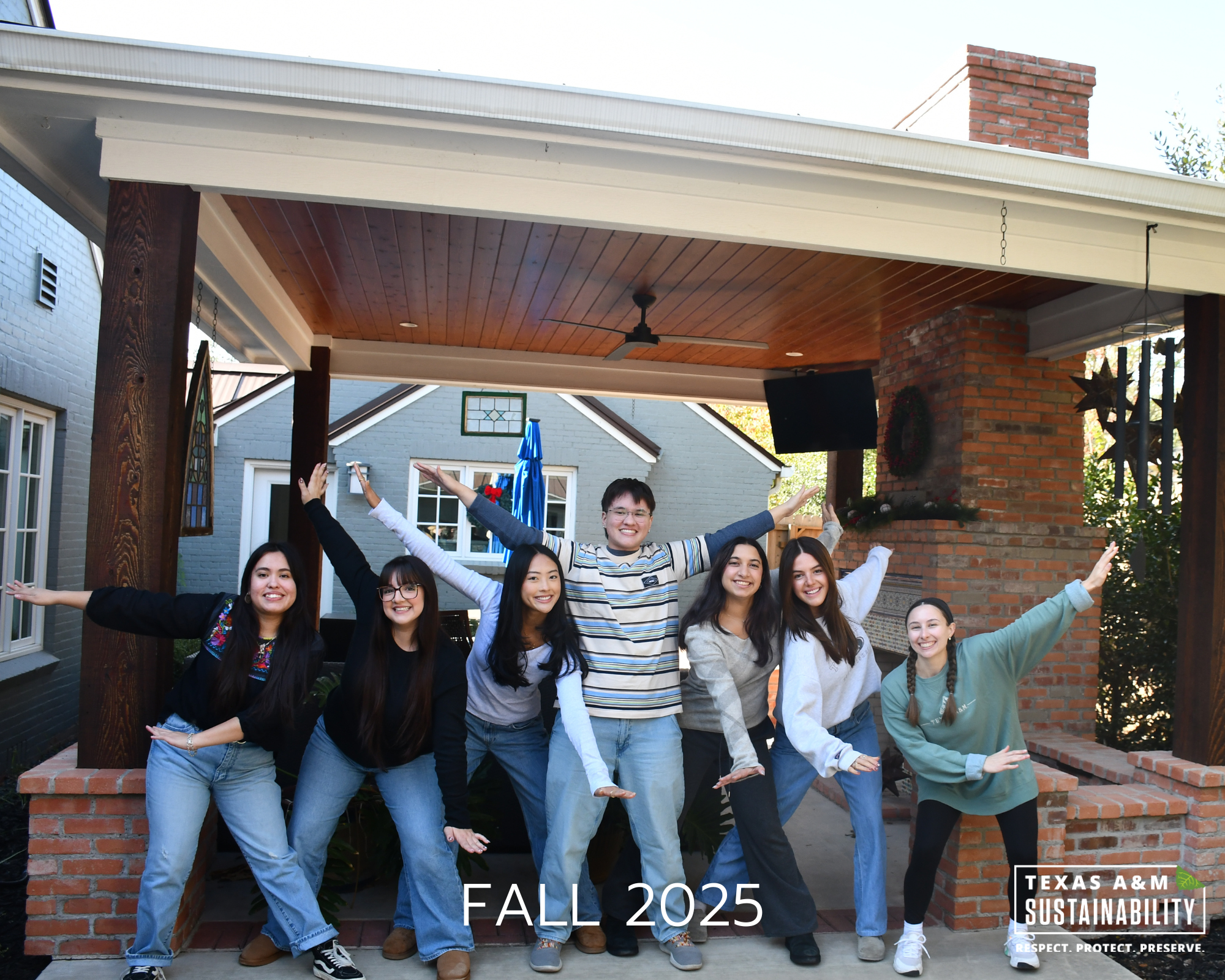
Fall 2024
The intern team continued to support education and outreach initiatives on campus through developing Campus Sustianability Month activities. Campus Sustainability Day activities included teaching about alternative proteins (we all tried crickets!), lessons on mending your own clothes, a gerrymandering game and a lesson on the large variety of pollinators. The interns creativety continued in their end of term Workshop, where they worked together to develop topics for the theme Think Global, Act Local.

Spring 2024
The interns focused efforts to support a variety of Earth Month programming events. The team tabled, celebrated Earth Day event, and hosted live 20-minute educational sessions throughout the month on topics such as veganism, sustainable production and consumption of coffee, river pollution impacts and solutions, and impacts of urbanization and light pollution. One of our interns took civic responsibility to a new level and became certified to register voters. They used their new status to register voters on Earth Day.

Fall 2023
The intern team continued to support education and outreach initiatives on campus through tabling and Campus Sustainability Day activities. For the first time since Spring 2019, the interns did not host 20-minute Ted-Talk style presentations. Instead, two-person intern teams piloted multi-part educational series shared on our YouTube channel. Topics covered were water reuse and sustainable water treatment, civil disputes, the future of sustainable energy, and traditional and native lawns.
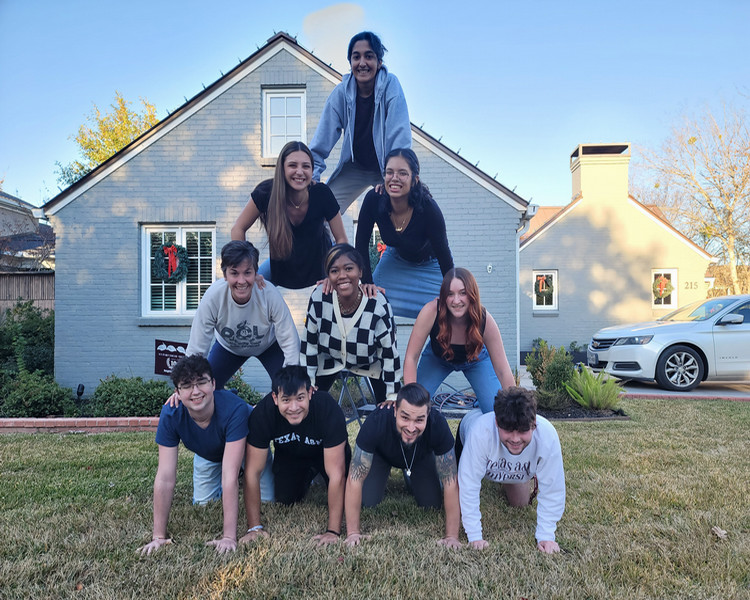
Spring 2023
The intern team helped the office get through one of the busiest semesters on record, as we celebrated our 15-year anniversary, 10 years of STARS, and hosted the statewide TRACS summit in Aggieland. Their hard work and dedication helped ensure we were able to accomplish our typical semester outreach objectives for campus while increasing our capacity.
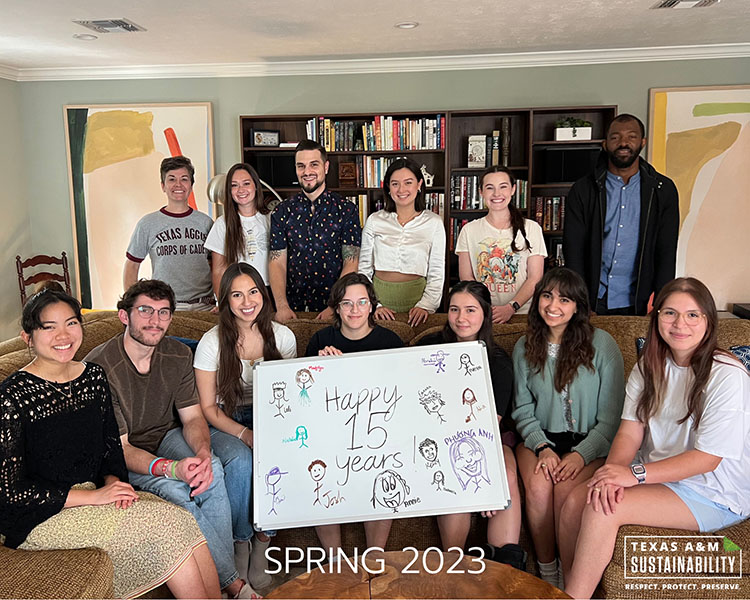
Fall 2022
Due to outside factors, we made the difficult decision to reduce incoming teams from twelve to 8 students. We made the best of our smaller team size and realized some great scheduling benefits that allowed us to have the entire team together for every shift. This resulted in improved teamwork in the field and a more inclusive experience. An example of the improved teamwork was an impactful and successful voter registration drive orchestrated by the interns.
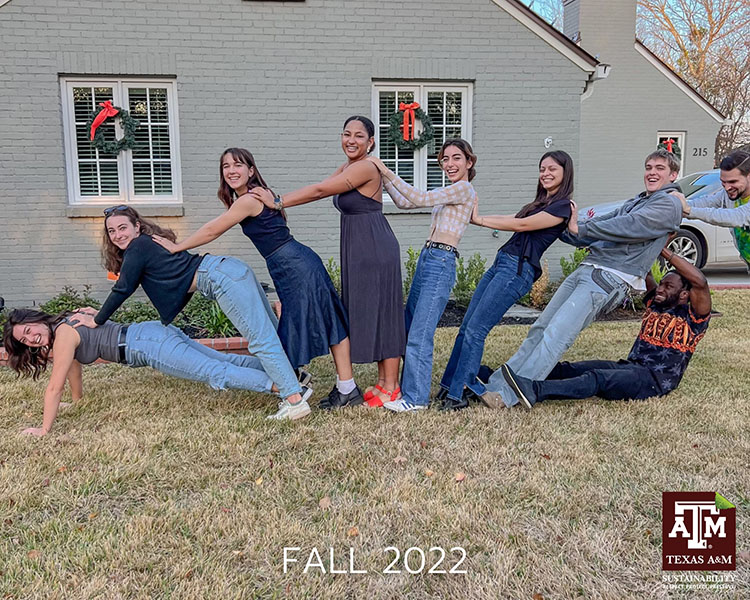
Spring 2022
Unforeseen circumstances had the program scrambling for a space to host interns in-person, so we remained resilient by using lessons learned when we were fully virtual to create a hybrid program that happened online and in office.
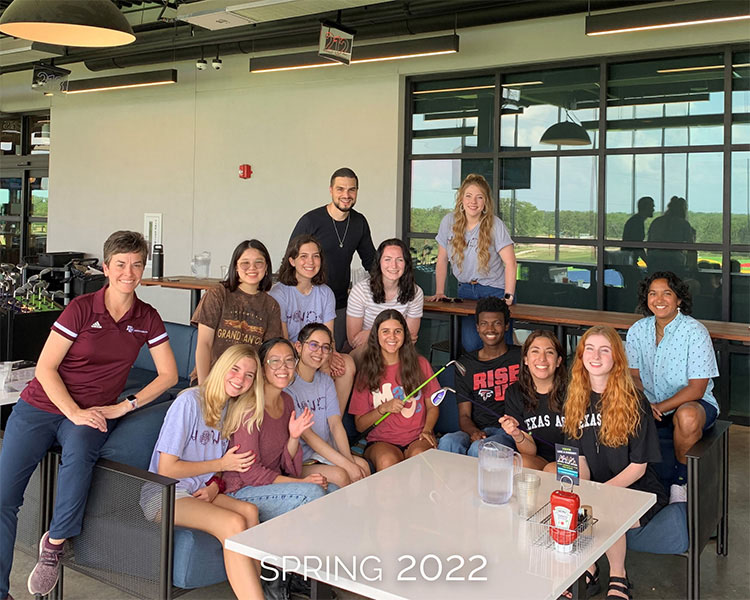
Fall 2021
Interns returned from the virtual landscape back to an in-person internship program. Campus Sustainability Day was turned into Campus Sustainability Month and incorporated both virtual and in-person options.
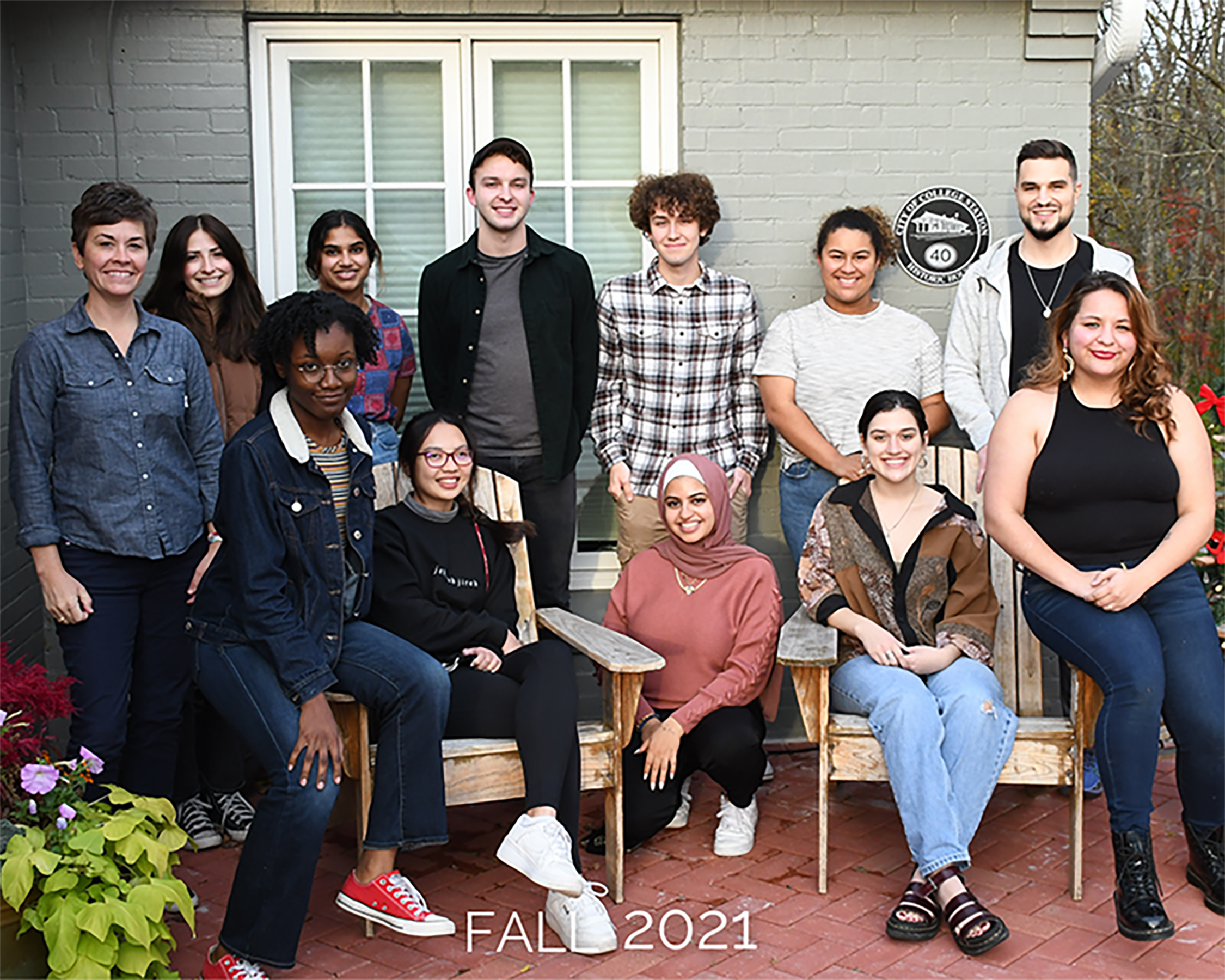
Spring 2021
Interns worked virtually for the third consecutive semester and continued producing virtual content which culminated in Virtual Earth Month. A well-known sustainability influencer and former intern provided the keynote for the virtual programming.
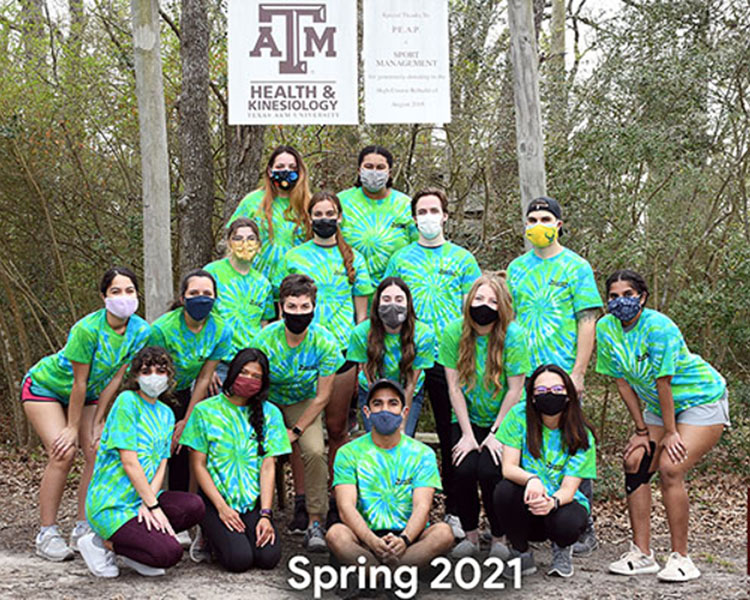
Fall 2020
The entirety of internship was conducted virtually for the first time in the program’s history. Interns created Virtual Campus Sustainability Month to educate our campus community while quarantining and once again all content is housed on our YouTube page.
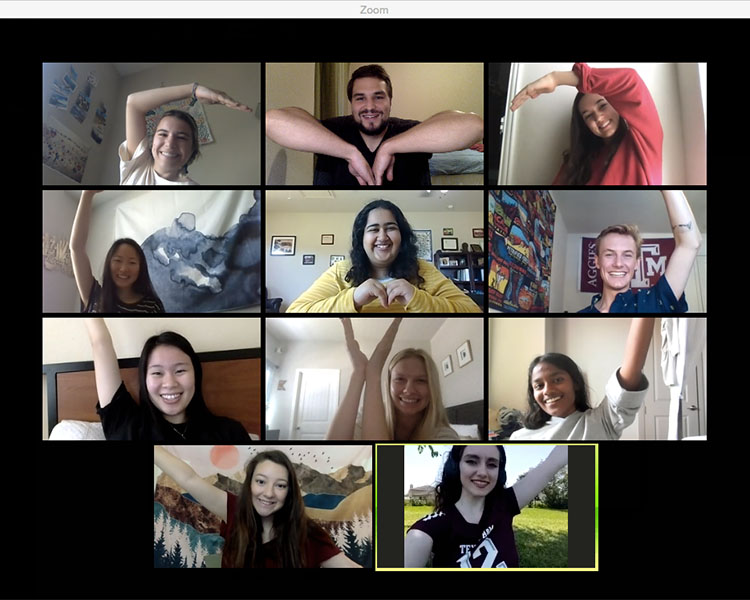
Spring 2020
Interns transitioned to virtual programming due to the COVID-19 pandemic and created numerous talks for Virtual Earth Month. It is the first-time intern talks were held virtually, recorded, and made available on our YouTube page.
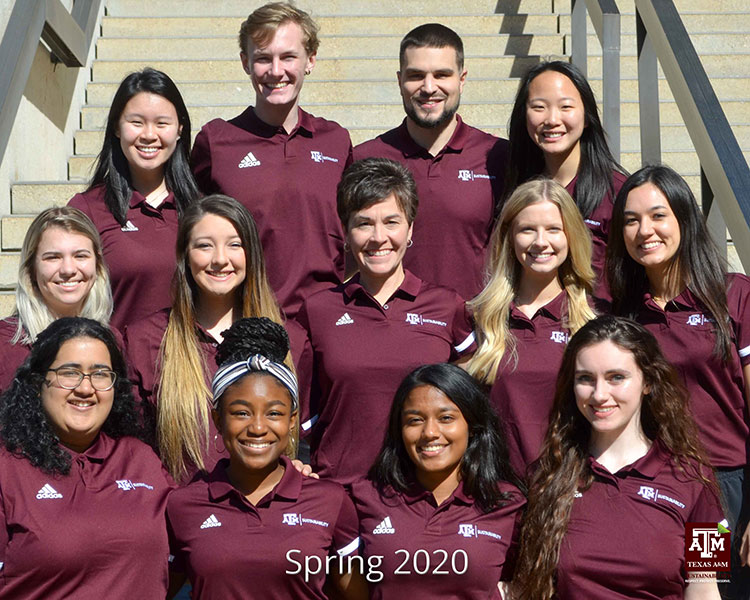
Fall 2019
Interns taught workshop attendees about the importance of making sure campus is inclusive to people with disabilities and connected the topic to social sustainability. Other topics included environmental justice, worldwide greenhouse gas emissions and renewable energy capacity, fast fashion, urban agriculture, and zero waste.
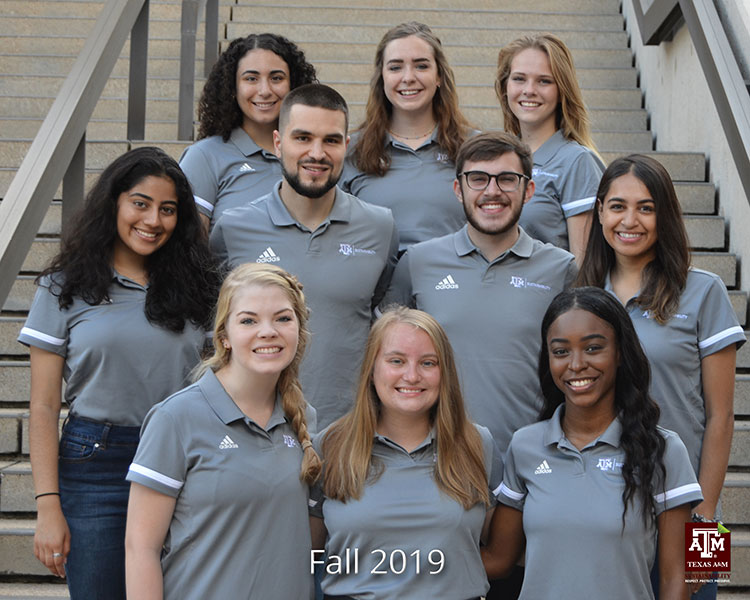
Spring 2019
The Sustainability Talks were created as an alternative to team presentations. The Talks used a 20-minute Ted-Talk style format and each intern designed their own presentation about a topic relating to climate change that they found most important to discuss. Talks topics included the hidden disparities of climate change, disease proliferation due to climate change, the coffee crisis, melting snow and rising seas, climate change deniers, and perceptions of climate change due to politics. Workshop topics covered social inequality and climate change, the secret life cycle of smartphones, the bee crisis and technology, income inequality, fast fashion, rainwater gardens, and reducing carbon footprints.
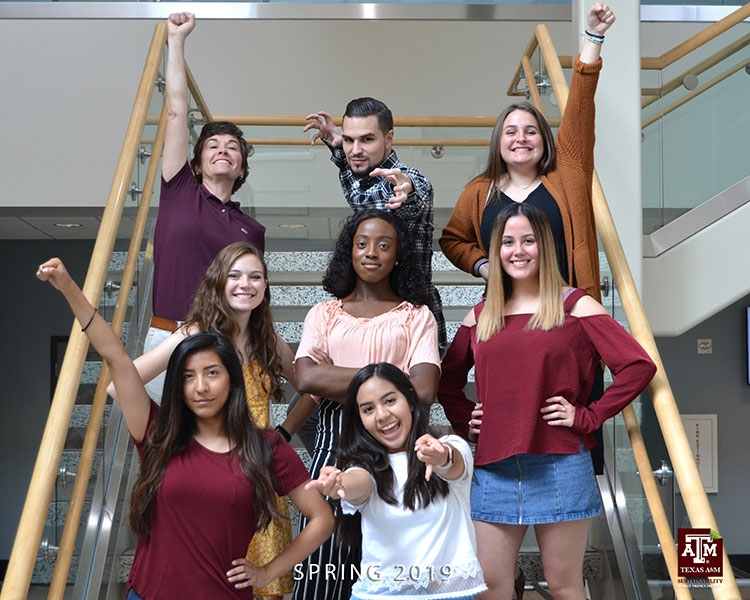
Fall 2018
Taste testing edible insects highlighted workshop content. Other topics included mental health awareness, social accountability in the age of “fake news,” the supply chain, sustainable holidays, the world water crisis, recycling, and the environmental and health benefits that accompany a plant-based diet. The semester’s presentation looked at the global impacts of fossil fuels and renewable energy.
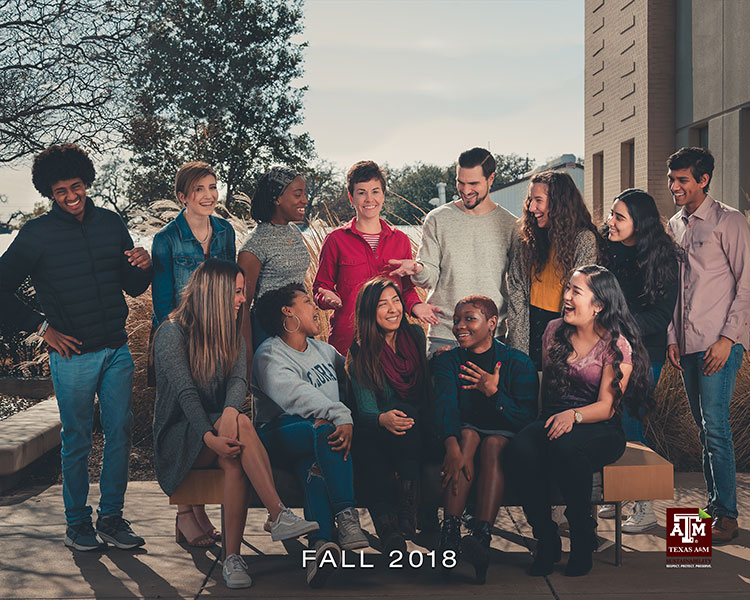
Spring 2018
Interns created two different workshops for the first time. One focused on social sustainability and looked into income inequality, history of minority groups in the United States, food deserts, and modern-day slavery. The other zeroed in on daily living and covered sustainable beauty, water quality and taste testing, minimalism, and income inequality. A presentation confronting the world water crisis was developed.
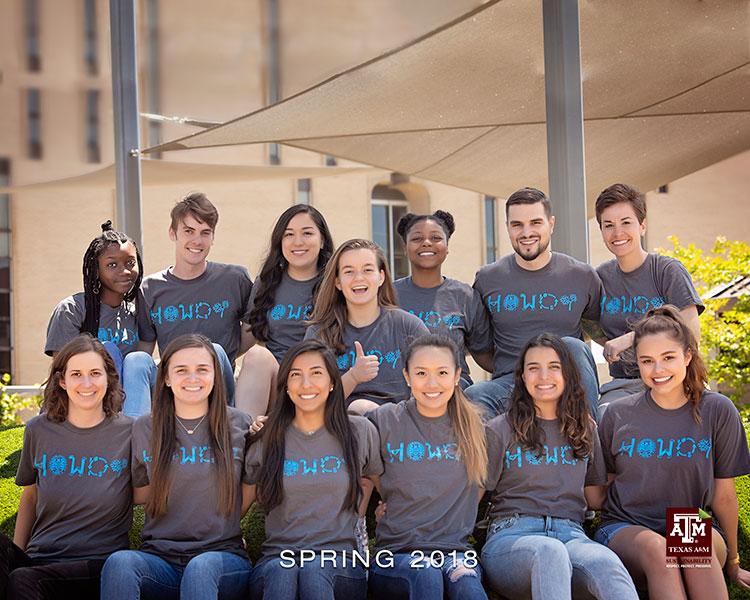
Fall 2017
Intern created presentation examined the environmental, social, and economic implications of the fast fashion industry. Workshop topics covered the bee crisis, DACA and immigration, climate change, and environmental justice.
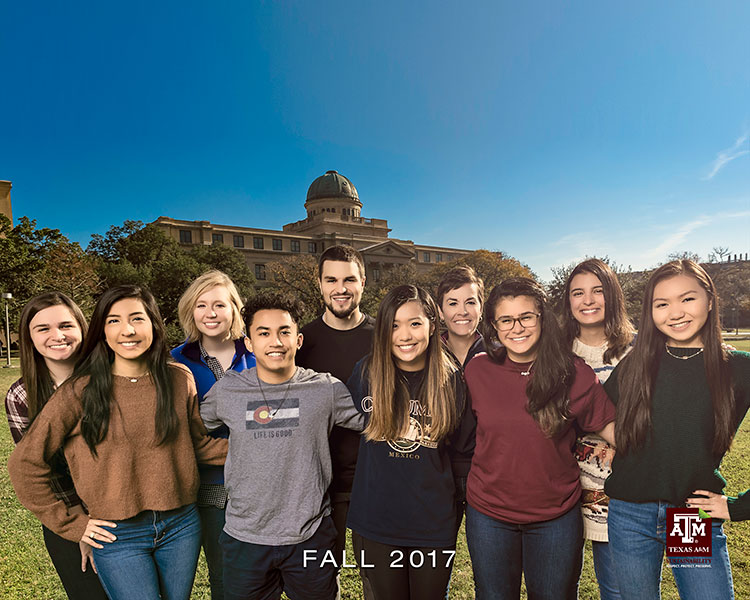
Spring 2017
Workshop topics selected included happiness and wellness, how to compost, conscious consumption, and encouraging civic engagement in the political process. The intern created presentation examined how mass media shapes our perceptions, privileges and disadvantages certain narratives, and how to critically evaluate news sources.
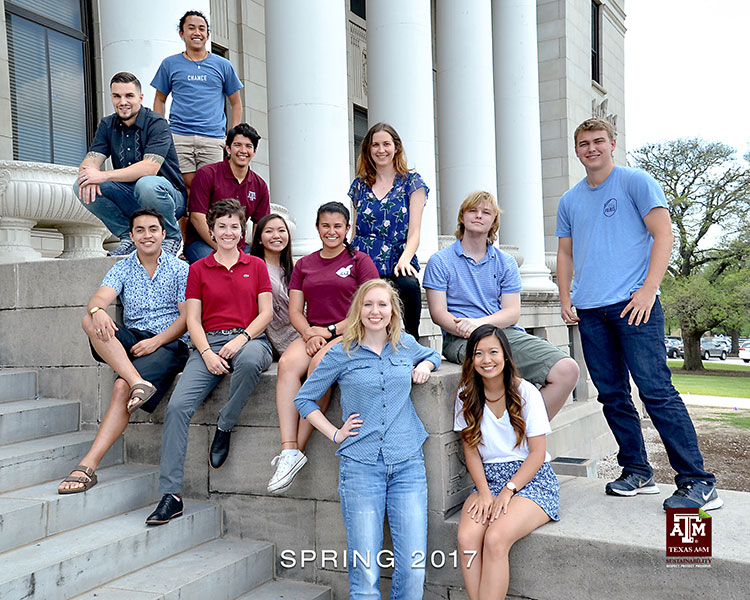
Fall 2016
Intern field trip to Challenge Works for teambuilding added to program. Intern designed workshop topics covered, learning how to reuse waster paper, water quality testing, the life cycle of products, and environmental racism.
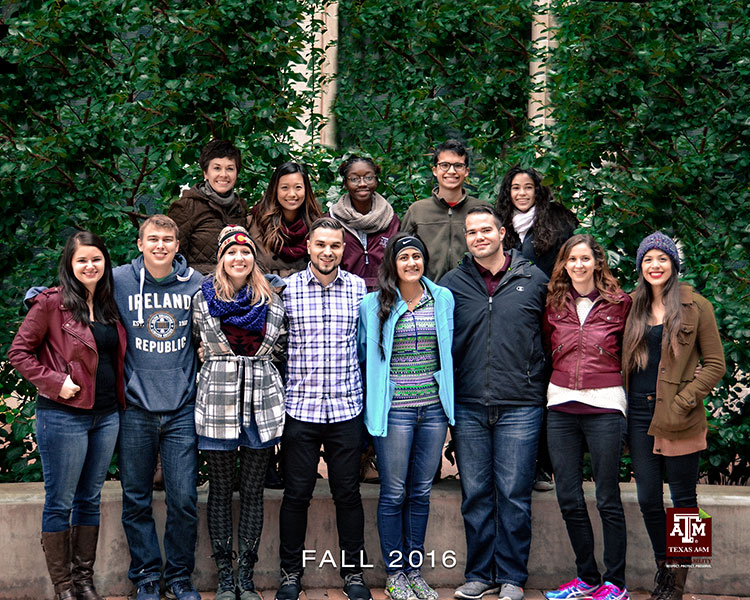
Spring 2016
Interns created a presentation and video to teach the Texas A&M community ways to live sustainably while in Aggieland. Workshop topics covered the contributions of minorities in science, grey energy, climate change, and techniques to combat stereotypes.
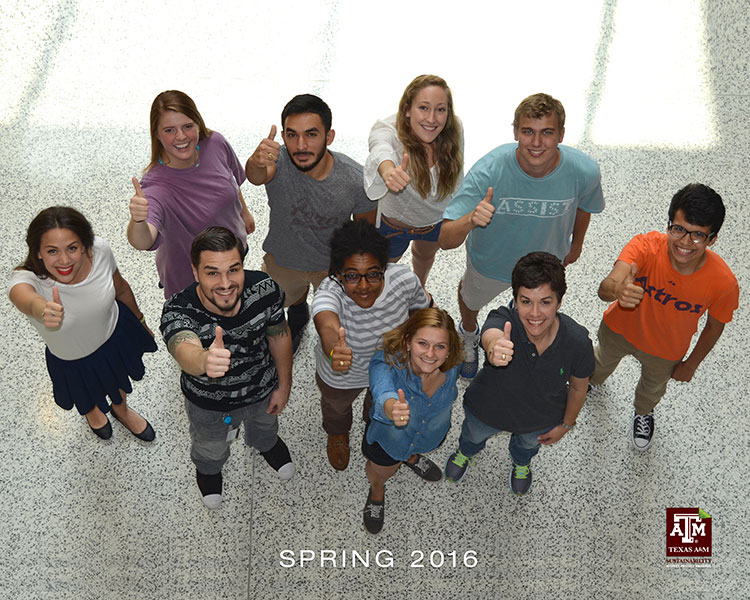
Fall 2015
Workshops focused on vampire energy, water, fair trade, and clothing. Interns developed an interactive activity for Campus Sustainability Day in support of Texas A&M’s LGBTQIA population.
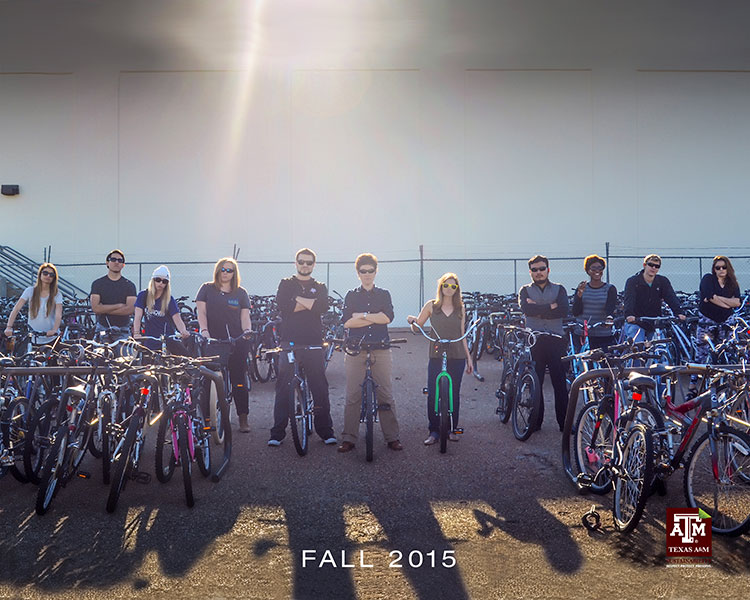
Spring 2015
Interns conceptualized and developed the workshop format to enhance the office’s education and outreach platforms. An intern developed a video series titled Sensibly Sustainable.
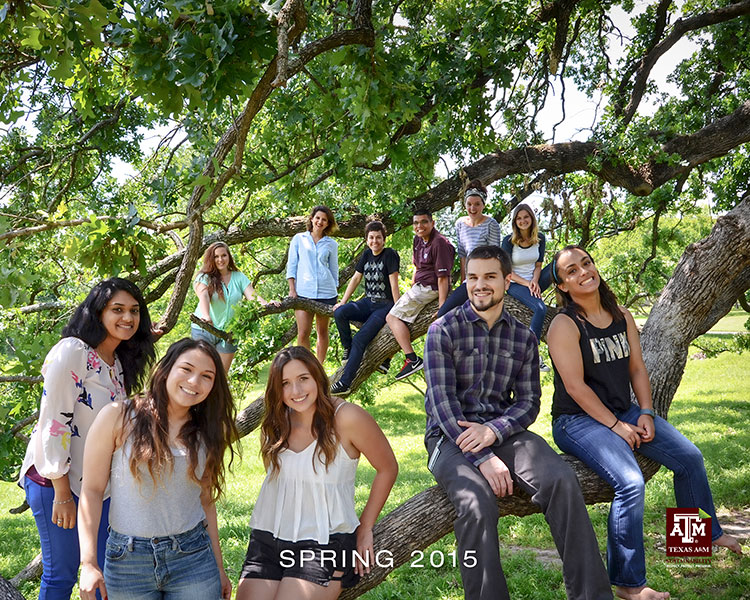
Fall 2014
Interns created a Conscious Consumption campaign that utilized social media, graphic design, tabling, and presentations. Intern led presentation used a game show style format similar to Jeopardy.
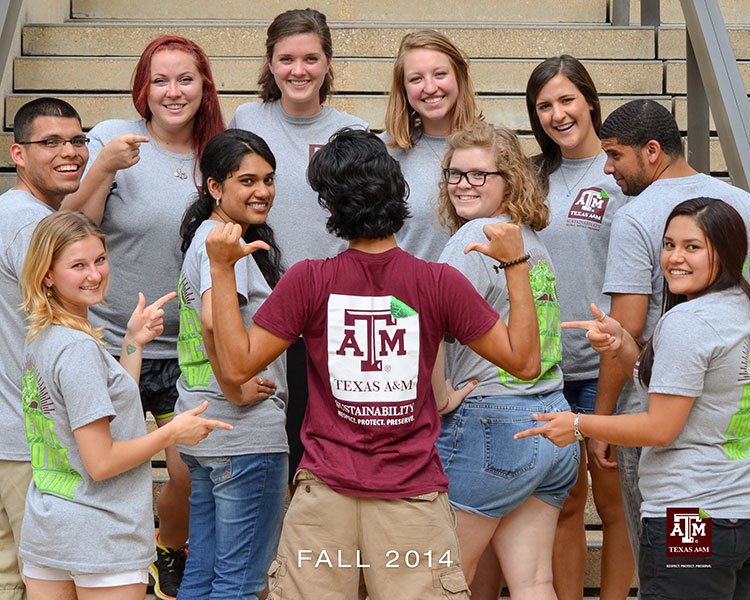
Spring 2014
Interns helped coordinate and plan the Texas Regional Alliance for Campus Sustainability Summit hosted by Texas A&M. The team developed the first focused outreach campaign. The campaign encouraged community members to help protect our shared water resources and reduce plastic pollution by switching from using single-use water bottles to reusable bottles.
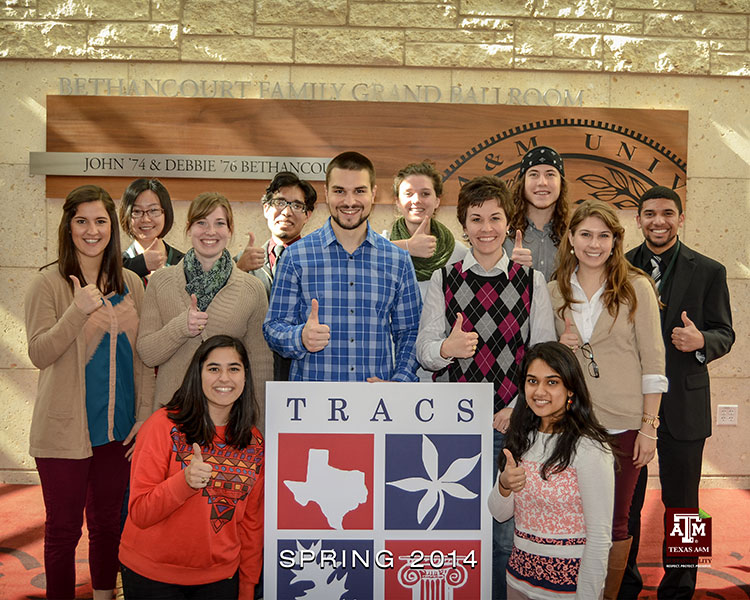
Fall 2013
Intern team grows from five to eight students to provide additional opportunities as student interest in joining the program increases. An intern earns a grant from the Aggie Green Fund to install energy efficient hand dryers in the Evans Library Annex.
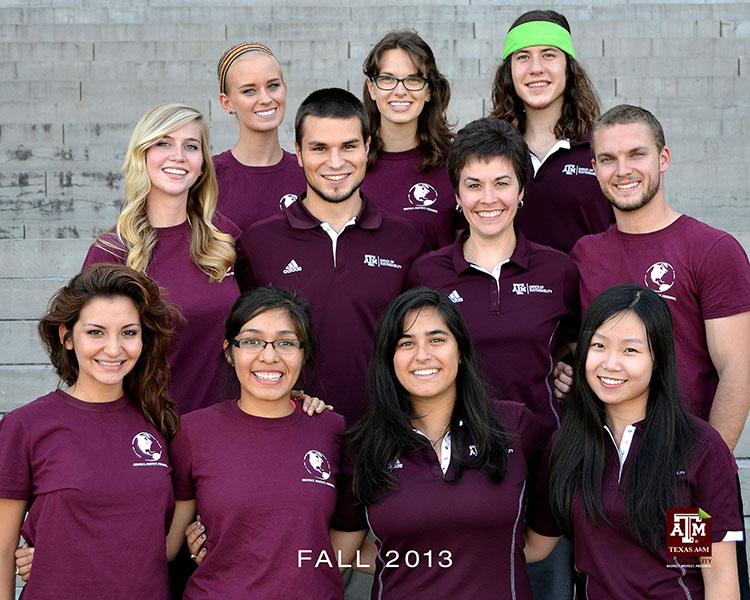
Spring 2013
Interns created a walking tour that highlights Texas A&M's sustainable features for new team members and developed, directed, and edited the first Office of Sustainability video. An intern helped create a partnership between with the MSC Carter G. Woodson Black Awareness Committee and the office to create a presentation titled, “The Social Life of Electronics.”
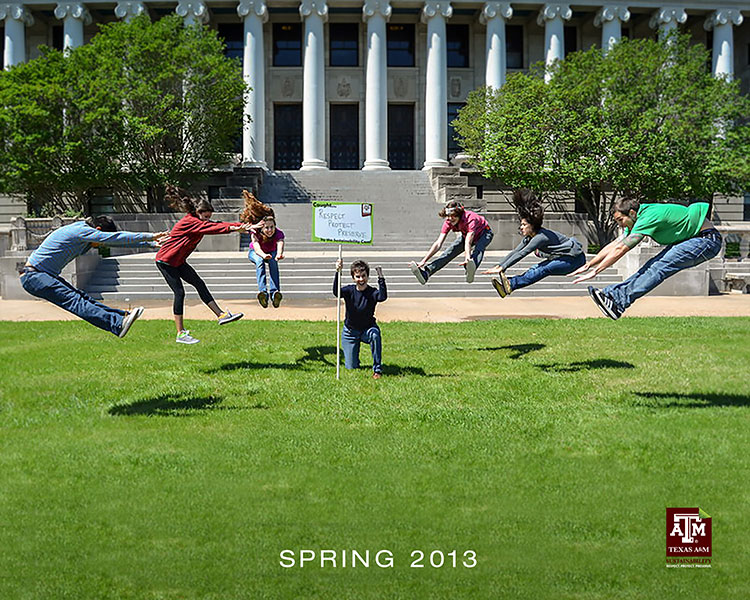
Fall 2012
Intern recruitment process changes implemented to increase diversity of the team’s personal identities and academic backgrounds. Increased diversity results in creative approaches to sustainability education, such as a storytelling approach that focused on quality outreach interactions instead of quantity.
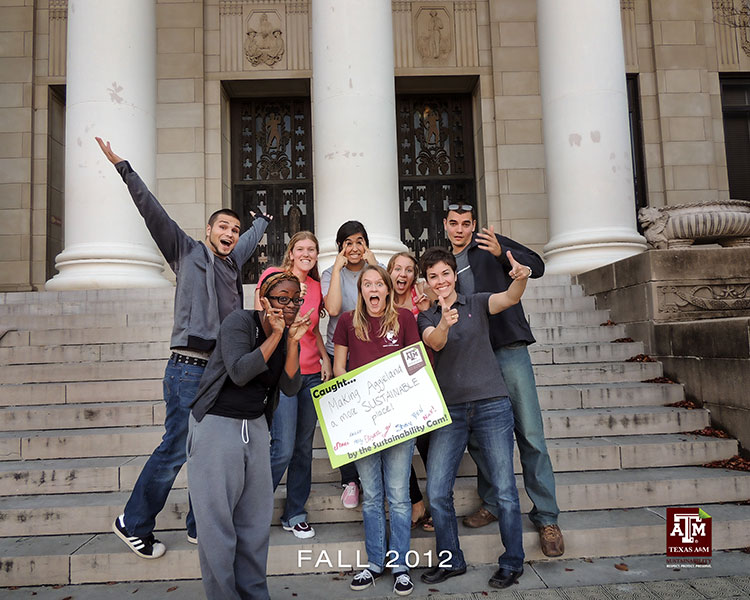
Spring 2012
The Sustainability Cam created to catch Texas A&M community members doing something sustainable to enhance social media content and following.
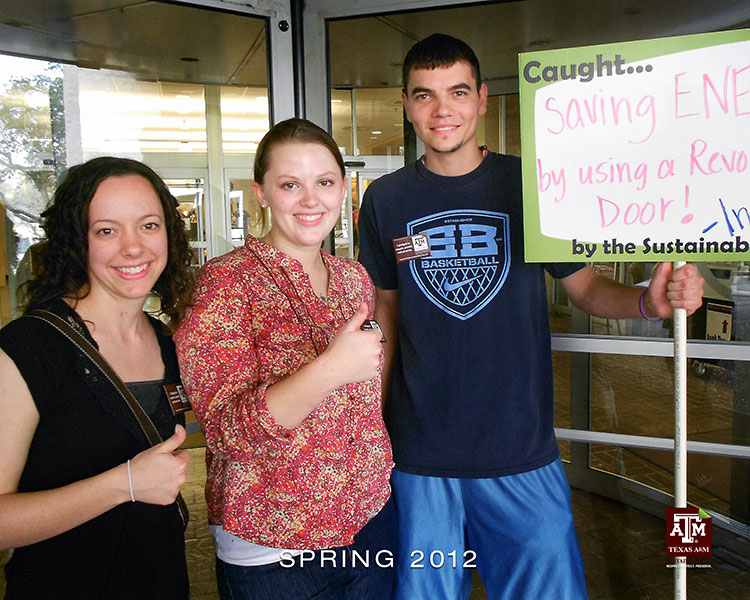
Fall 2011
The first intern team is created and the office takes the team to Pittsburgh, PA for the first national conference of the Association for Advancement of Sustainability in Higher Education (AASHE).
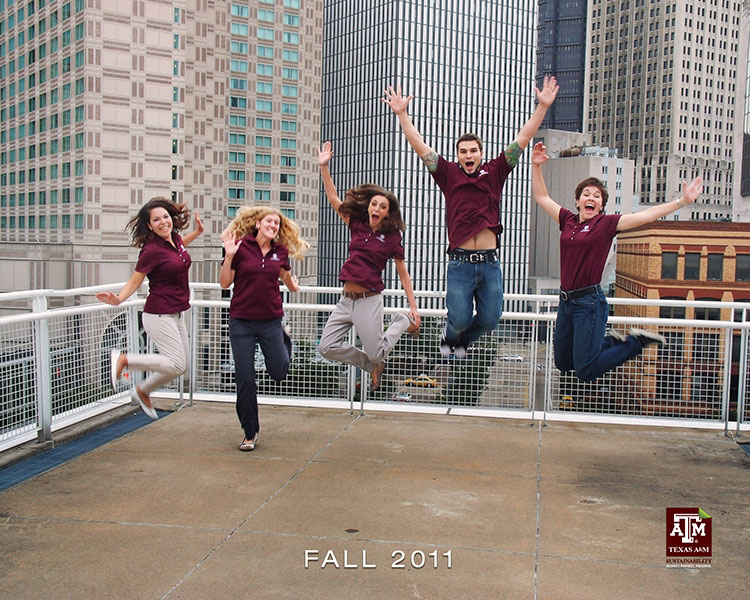
Summer 2011
Internship program launches with hiring of the first Sustainability Intern at Texas A&M. This intern goes on to create the Sustainable Office Certification program later in 2011, the precursor to the current Aggie Sustainability Alliance.
